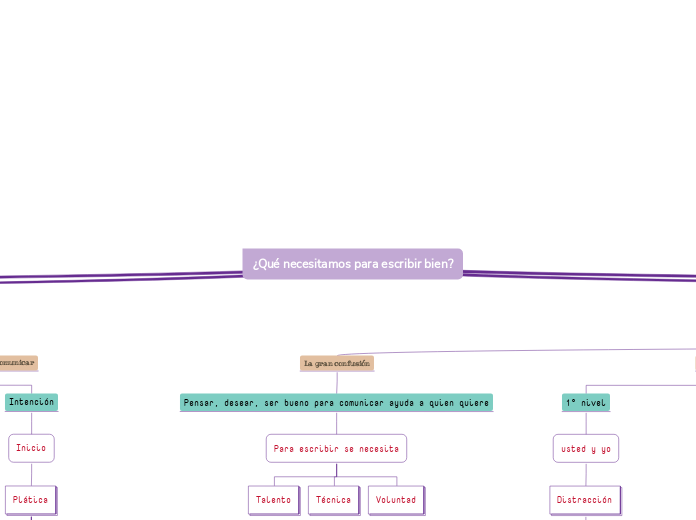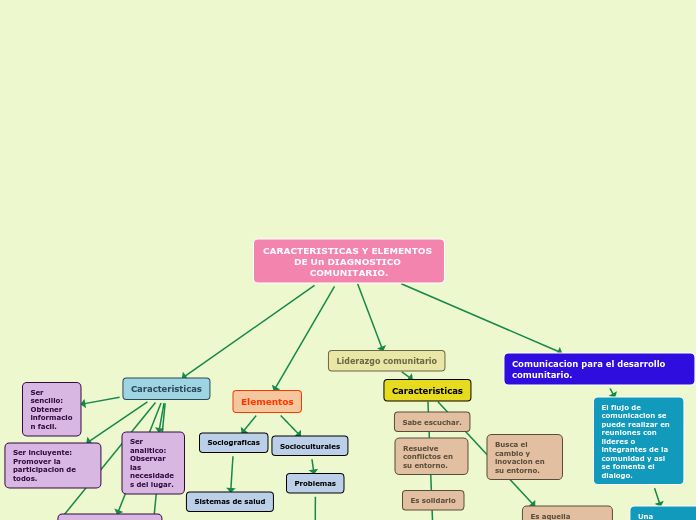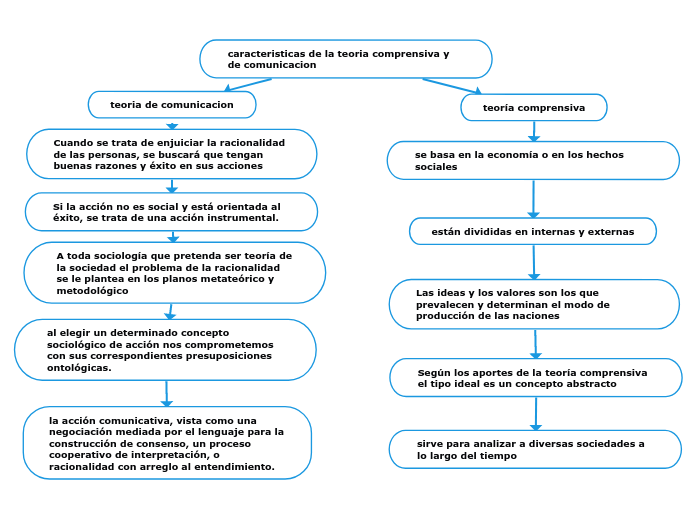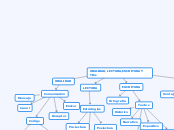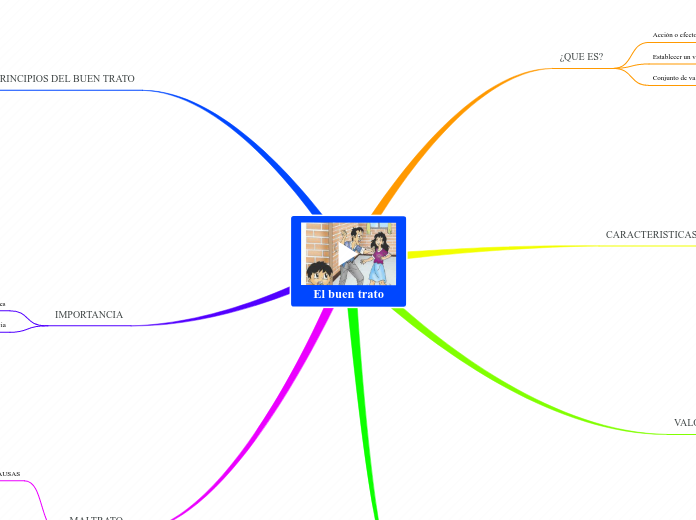¿Qué necesitamos para escribir bien?
Type in the name of the multiple-perspectives text.
Example: Bridge to Terabithia by Katherine Paterson
Árbol de Sabiduría
Texto Árbol comunicativo
Tema
Rango superior
Obtención fines
Código
Redacción
Convertir textos
Secuencia continua (Nuñez 1993)
Ideas importantes
Unidad de comunicación
Producto lingüístico
Estructurado por reglas
Reproduce Ideas
Type in a relevant quote that highlights the character's point of view towards
Árbol de Sabiduría.
Try following a citation format: author's name, chapter, and page.
Example: 'Jesse drew the way some people drank whiskey. (...) Lord, he loved to draw. (...) When he was in first grade, he told his father that he wanted to be an artist when he grew up.' (Paterson, 2. 7)
Leguaje
Comunicación persuasiva
Mariscal de página
Comunicación
publico
Reglas de habla y escucha
Manera
Proponer un orden claro
Afectación de relevancia
Contar para entender y tener los objetivos claros
Calidad
No aceptación sin pruebas
Cantidad
Exige contribucones claras
Estrategia
Actuar
Disponer
Idear
Escribir no es solo redactar
Orden secuencial
Mente abierta
Variabilidad de público
Tono de voz
Procesos
Organizar
Inventar
Oveja Doly
Comunicar
Escribir
Negociar
Retórica
Plan de enseñanza y estrategia
mundo de la comunicación
Fases
Actuación
Memorizar
Redacción del texto
Seleccionar ideas
Indagar
Ideas
Sistema de apoyo
Comunicación oral
Nivel Lector
2° nivel
no va al autor
Cuestiona
Cómo?,
Multiplica
se pone en el lugar del escritor
1° nivel
usted y yo
Distracción
informar
dejarse llevar por la lectura
La gran confusión
Pensar, desear, ser bueno para comunicar ayuda a quien quiere
Type in a relevant quote that highlights the character's point of view towards
Comunicación persuasiva.
Try following a citation format: author's name, chapter, and page.
Example: 'Jesse drew the way some people drank whiskey. (...) Lord, he loved to draw. (...) When he was in first grade, he told his father that he wanted to be an artist when he grew up.' (Paterson, 2. 7)
Para escribir se necesita
Técnica
Talento
La actitud y la capacidad analítica son importantes en la lectura
Voluntad de comunicar
Intención
Inicio
Plática
Confianza
Percepción
Miedo
Actitud
Componente
Voluntad
Aprendizaje
Catedral y Bazar
Bazar
Todos aportan
uno toma el contenido
Abierto
catedral
Planificar
Desarrollar
Metáforas
para un buen planteamiento
con contenidos abiertos
Paradigma del entretenimiento
comunicación
Todos somos fuente de información
podemos transmitir
mensajes llamativos
atracción
llegar al convencimiento
Máquina de congelar las palabras
Características
Type in a relevant quote that highlights the character's point of view towards
La actitud y la capacidad analítica son importantes en la lectura.
Try following a citation format: author's name, chapter, and page.
Example: 'Jesse drew the way some people drank whiskey. (...) Lord, he loved to draw. (...) When he was in first grade, he told his father that he wanted to be an artist when he grew up.' (Paterson, 2. 7)
Escritura
Comunicación controlada y diferida
Debe estar solo para escribir
historia de ausencia
escritor
imagina, piensa en el público
Comunicador huérfano
se involucra el público
tiempo e escucha
dificultad para hablar en público
Escribir es un ejercicio más difícil que hablar
Identify an important issue from the text that is being presented from different angles. Type it in.
Example: Jesse's drawing talent.
Kant y el Indio Lakota
Decide on the fourth point of view
Type in the name of the last character whose perspective on the issue you are going to present.
Example: Leslie Burke, Jesse's new next-door neighbor, and best friend.
Comunicar es el proceso escrito de las personas
Point of view
Type in a relevant quote that highlights the character's point of view. Try to follow a citation format: author's name, chapter, and page.
Example: I can't get the poetry of the trees,' he said. She nodded. Don't worry,' she said. You will someday. He believed her.' (Paterson, 4. 24)
Al cambiar de comunicación-cambia el mensaje
How is the viewpoint introduced in the story?
Choose an answer:
First person point of view - using the personal pronouns 'I' or 'we'Second person point of view - using the personal pronoun 'you'Third person point of view - using the third-person pronouns 'he', 'she' and 'they'Omniscient point of view - an all-seeing observer tells the story
Imágen
Escritura del público
Se dificulta más que la conversación
La mente favorece la escritura
Lenguaje codificado
Reconocimiento
Mensaje escrito
Medio de comunicación
Ramo de Flores
Whose character does the third point of view belong to?
Type in his/her name.
Example: Mr. Aarons, Jesse's father.
Expresar no es lo mismo que comunicar
What does the character think, say or do that suggests their perspective on the issue?
Type in a quote and try to maintain the citation format.
Example: 'He would like to show his drawings to his dad, but he didn't dare. (...) He'd thought his dad would be pleased. He wasn't. What are they teaching in that damn school? he had asked.' (Paterson, 2.8)
Se debe buscar la manera de expresar lo que se quiere comunicar
What kind of narration introduces the viewpoint?
Choose an answer:
First person point of view - using the personal pronouns 'I' or 'we'Second person point of view - using the personal pronoun 'you'Third person point of view - using the third-person pronouns 'he', 'she' and 'they'Omniscient point of view - an all-seeing observer tells the story
Expresión con objetivo
Gráfico
Léxico
Modelo ODA
Decide on the second point of view
Name the character (it can either be the main character or one of the supporting characters) whose point of view you are presenting.
Example: Miss Edmunds, Jesse's music teacher.
Permite ver las dificultades que se tienen para comunicar
Type in a quote that points out the character's position about the issue.
Try to follow a citation format: author's name, chapter, and page.
Example: 'She said he was unusually talented, and she hoped he wouldn't let anything discourage him.' (Paterson, 2. 8)
Para escribir no basta con solo leer; va de la mano con la vida cotidiana.
How is the viewpoint introduced in the story?
Choose an answer:
First person point of viewSecond person point of viewThird person point of viewOmniscient point of view
Conocer los procesos de escritura
Inquietud Global
Decide on the first point of view you are going to present.
Type in the name of the character (it can either be the main character or one of the supporting characters) whose point of view belongs to.
Example: Jesse Oliver Aarons, Jr., the main character of the novel, a fifth-grader living in a rural Southern area.
Dificultad en la parte oral y escrita
Type in a relevant quote that highlights the character's point of view towards
Escribir es un ejercicio más difícil que hablar.
Try following a citation format: author's name, chapter, and page.
Example: 'Jesse drew the way some people drank whiskey. (...) Lord, he loved to draw. (...) When he was in first grade, he told his father that he wanted to be an artist when he grew up.' (Paterson, 2. 7)
Fracaso
Incomprensión del Docente, por no buscar estrategias
Problemas de Comunicación
What type of narration introduces the viewpoint?
Choose an answer:
First person point of view - using the personal pronouns 'I' or 'we'Second person point of view - using the personal pronoun 'you'Third person point of view - using the third-person pronouns 'he', 'she' and 'they'Omniscient point of view - an all-seeing observer tells the story
